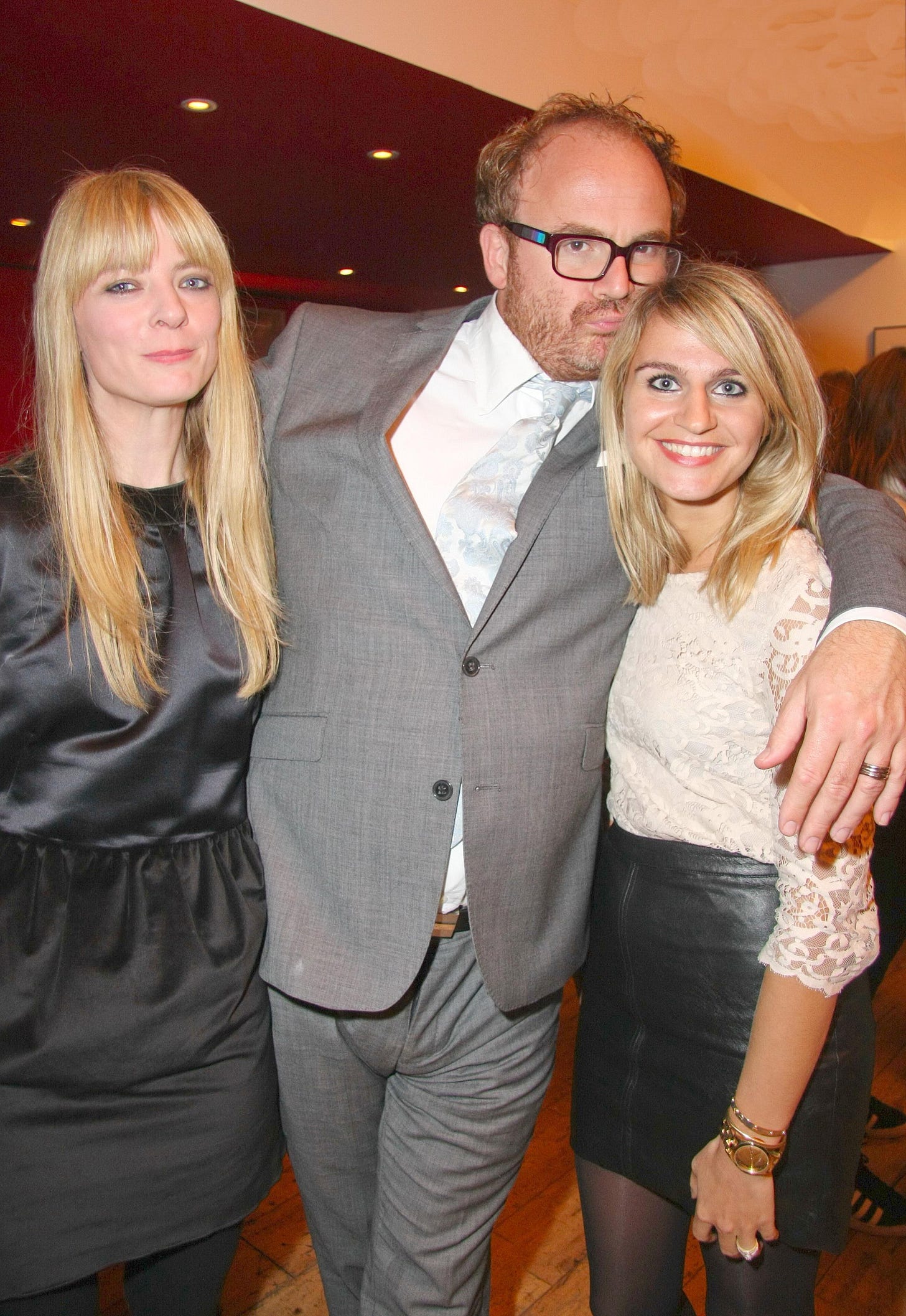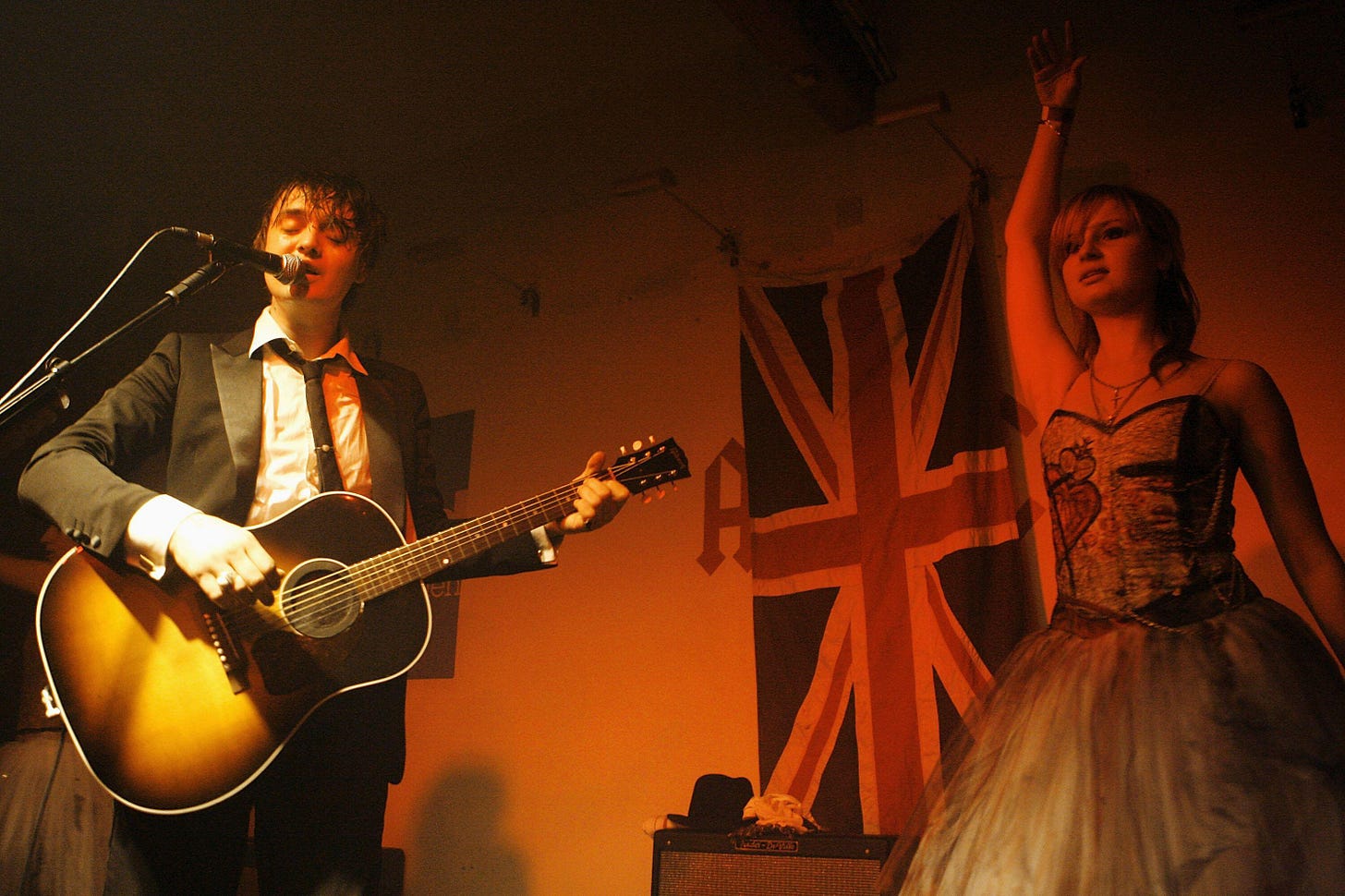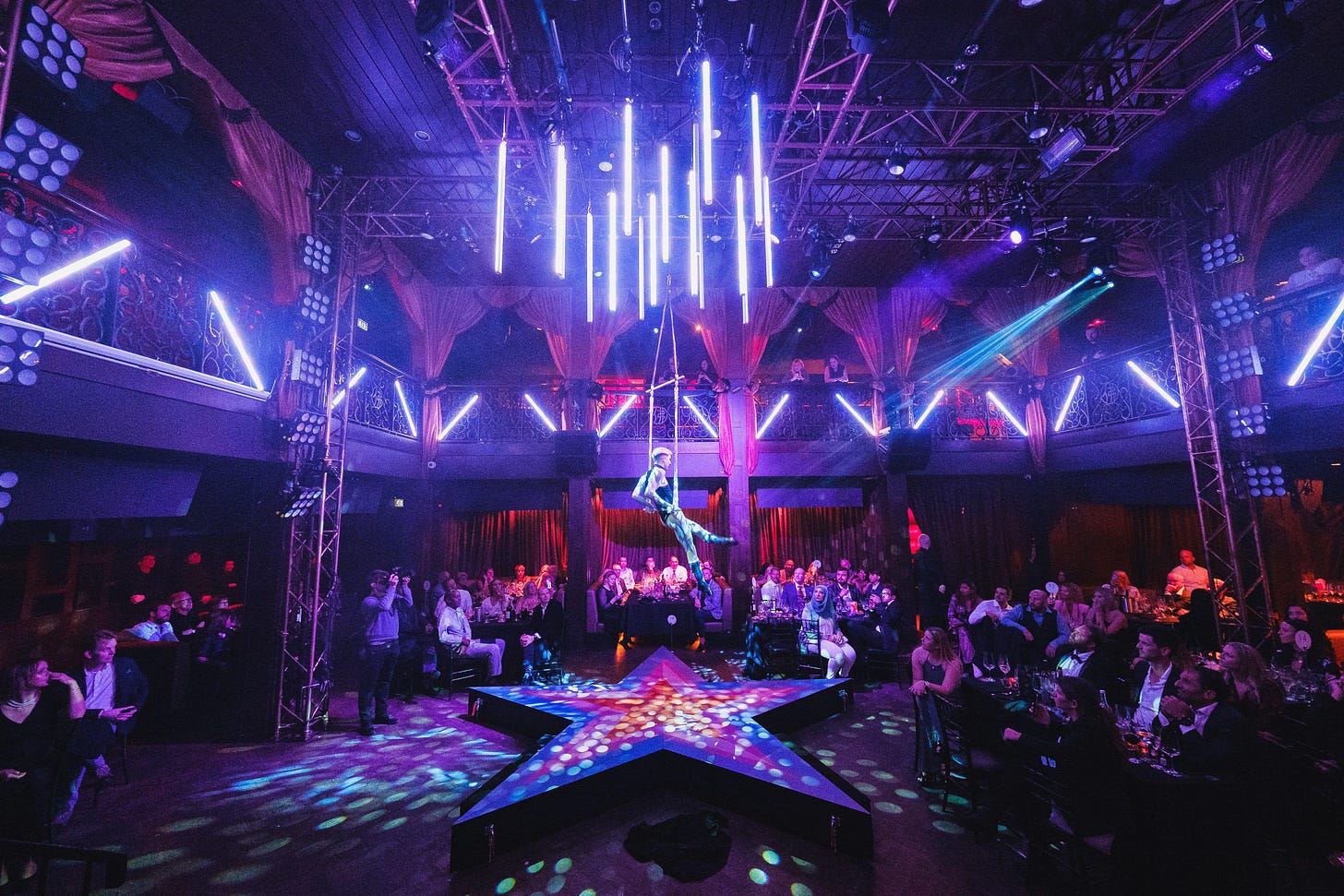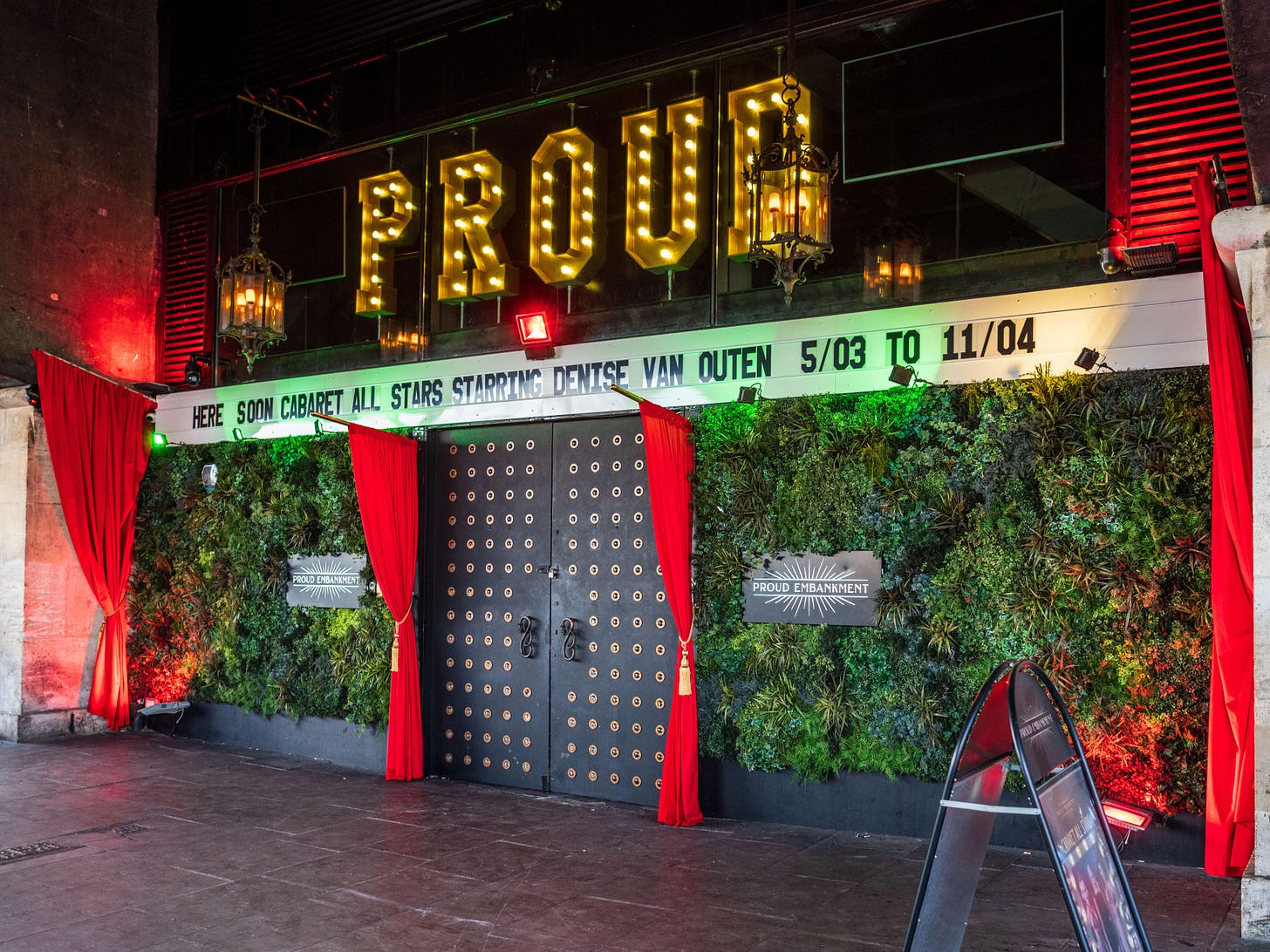The cabaret boss, the unpaid wages, and the £500k Covid grant
As Alex Proud prepares to open a new late night venue in Shoreditch, the London nightlife baron has left a trail of unpaid debts and angry performers in his wake.
By Sophie Wilkinson and Jim Waterson
A typical night at one of Alex Proud’s London cabaret venues could involve men breathing fire, women dangling from ropes, and drag queen comedy sets. But the performers and producers making it happen, plus the bar staff and chefs delivering bottomless brunches and late night cocktails, aren’t necessarily getting paid.
Now, a group of performers and staff calling themselves Cabaret Unpaid are demanding more than £100,000 in allegedly outstanding wages from Proud, one of the capital’s best known nightclub bosses, two weeks before the grand launch of his latest London venue.
What’s more, London Centric has learned that Arts Council England is considering allegations that Proud overstated the financial health of his venues in order to obtain emergency Covid-era arts funding. Proud’s company received more than £500,000 of public money in 2021, only for his business to later collapse without paying all of its employees in full.
One of Cabaret Unpaid’s founders, a former worker at several of Proud’s London venues, said: “I don’t think he has an intention of paying any of us and he doesn’t believe he owes anyone. I think his lavish lifestyle and track record of running businesses means he just won't manage."
Proud, who is shrugging off the criticism and preparing to open a new cabaret venue in Shoreditch next week, insisted he intends to repay his former staff when it is “financially viable” to do so. The club owner, who recently took out a loan secured against a Lamborghini, dismissed the allegations about him, telling London Centric: “Many of the claims are exaggerated, lack context, or are based on unverified sources.”
The home of indie sleaze
Alex Proud is one of the capital’s best-known club owners and promoters, with a penchant for naming venues after himself. If he isn’t familiar to you, you may have missed the moment when Proud Camden was a centre of the “indie sleaze” movement during the 2000s. The gallery-cum-club hosted the likes of Sir Paul McCartney, Sadie Frost, Alexa Chung, and Mark Ronson. Pete Doherty and Sting performed at the venue and it was where Amy Winehouse apparently stirred up a feud with Lily Allen. It was also the location where Noel Fielding, then 33, was spotted “canoodling” with Pixie Geldof, then 16.
Proud, 55, wrote a weekly column in the Daily Telegraph, was a regular expert on Channel 4’s art dealing show Four Rooms, and described himself as an informal adviser to the Liberal Democrats — hosting the party’s 2019 leadership election results announcement at one of his venues.
In recent years, however, Proud, has increasingly struggled, especially after The Sunday Times reported that he had allegedly bullied, harassed and assaulted several employees and interns. Claims included that he once picked a 19-year-old employee up and spanked her "hard" on the backside and groped two other female staff. Proud vehemently denied the allegations, calling them "earnest" and “untrue” and insisting he runs “a progressive working environment”.
Despite the “integrity, honesty and openness” of Proud’s operations being openly questioned by the Metropolitan Police during one licence review into his Embankment venue, his businesses continue to operate across London, even in areas where his companies owe hundreds of thousands of pounds to local authorities.
London Centric has been shortlisted for Private Eye’s Paul Foot Award due to our commitment to investigative journalism. If you aren’t already a paying subscriber and want to take a stand against clickbait while supporting proper local journalism about London, please consider joining now.
“A life of work destroyed by idiots”
The pandemic lockdown forced Proud’s venues to shutter their doors and in January 2021 he complained that he had had “a life of work destroyed by idiots.”
Weeks later his company submitted what would become a successful application for a Culture Recovery Fund Grant to Arts Council England, which London Centric has seen following a Freedom of Information request. In it, Proud claimed that his establishments should be financially supported by the government because their closure “would reduce cultural engagement in the cabaret artform” as there were few mainstream venues providing employment for performers in this field.
Crucially, Proud’s application stated that he was justified in claiming public funds because his venues employed hundreds of people and had been "financially strong before the lockdown” with a “solid financial history”.
It was enough to convince Arts Council England to give Proud’s business £535,000 in cash — more money than it gave to the Royal Philharmonic Orchestra or the BRIT School for the performing arts — on the basis this would help Proud’s otherwise healthy company survive a period of short-term financial stress.
Yet records reviewed by London Centric show that in summer 2019, months before anyone had reported a case of Covid, several of the companies that operated Proud’s venues had been put into liquidation, leaving behind millions of pounds in unpaid taxes and debts to small businesses. Some of the venues also owed large sums to the business equivalent of payday loans companies, suggesting there had been desperate attempts to borrow money to save the companies.
Despite these corporate failures Proud retained control of his venues through a new company called The Strand Photography Gallery Ltd, enabling him to start again with a fresh slate. He then took advantage of a pandemic-era rule that allowed businesses to delay filing their accounts. This meant that at the time of his application for government funding it was not publicly known that Proud’s new company had already run up net debts of £1m.
Asked whether he made honest financial declarations on his successful request for more than £500,000 of government funding, Proud told London Centric: “The application was submitted in good faith based on the best available information at the time. I stand by those statements in the context of pre-pandemic trading conditions.”
“Reading the financials is complex”
All of this is little help for the out-of-pocket cabaret performers and venue staff who saw their employer receive a large financial bailout from the government during the pandemic but then later allegedly fail to pay their wages in full.
They also have questions for the Arts Council England over how much the organisation scrutinised Proud’s application before giving him the money. The arts body’s own internal assessment – also obtained through a Freedom of Information request – acknowledges that Proud’s business structure means “reading the financials is complex”.
Despite this, it gave Proud’s financial plans a “strong” rating and said the bailout money would quickly help the venues return to being “a viable and sustainable” business by summer 2021, enabling it continue to employ hundreds of people.
In reality, Proud’s company burned through the money and was liquidated three years later.
There has been growing scrutiny of the claims made by private companies to obtain grants from the Arts Council Recovery Fund. An investigation by the Manchester Mill uncovered inaccuracies on an application by club promoter Sacha Lord to secure £400,000 from the same fund, which resulted in his company being asked to pay back the money. Both Lord and Proud have sat on the board of the Night Time Industries Association, a high-profile industry lobbying group.
Arts Council England told London Centric they are considering concerns about the accuracy of the financial statements on Proud’s funding application: “The Culture Recovery Fund was developed by [the government] during the Covid-19 pandemic in order to provide critical support to the organisations that make up our country's valued and valuable culture infrastructure. In administering the fund, Arts Council England was aware of its responsibility to protect tax-payers’ money and invest it wisely. The criteria to award a grant, which were set by government, were rigorous, and the process was overseen by an independent Culture Board. We take any concerns raised to us about an application or award very seriously.”
In total London Centric has identified at least 15 companies linked to Proud that have been declared insolvent since 2010, collectively owing £13.8m in unpaid debts. Proud refused to be drawn on the details of his long history of corporate insolvencies. “As the companies in question are now in liquidation, it would be inappropriate for us to comment,” he said, adding “all matters concerning the companies' affairs now rests with the duly appointed liquidators.”
The Lamborghini loan
There are signs that things are becoming increasingly desperate for Proud. According to company accounts, in March a 1985 Lamborghini Jalpa car was used as collateral for a loan. The car is registered to a seven-bedroom converted oast house in East Sussex, which is currently on sale at a reduced price of £2m.
But Proud’s personal and professional financial woes have had a huge impact on London’s cabaret sector, leaving many performers out of pocket. The collective of performers and workers behind Cabaret Unpaid say they are now looking for in-kind recognition of their unpaid labour. If Proud won’t pay them, they’d like him to recognise their contribution — such as enabling them to be involved in running the cabaret venues on a more financially sustainable basis: “We're looking into other ways for our roles as investors in his companies to be recognised. We’d be keen on taking over his venues so we can earn back that money and secure a venue for the arts.”
The campaign, which is backed by the performing arts and entertainment trade union Equity, has been drumming up support on Instagram, where users have shared their experiences of Proud. One person alleges that they’ve been “chasing [overdue pay] for 18 months, got blocked when I spoke up about it” and were owed money “from Dec 2023 😡😡😡”. Another claimed: “I was owed 5k at one point. Luckily I got it back because I left before he last liquified.” Employees recall receiving wages intermittently, at best, sometimes over PayPal from accounts not directly related to the business. London Centric has not been able to verify these individual claims.
Proud insisted he intends to ultimately pay his former staff despite not being obliged to do so, saying in a statement: “The debts relate to companies that underwent lawful insolvency. They are not personal liabilities. Legally, those debts ended with the companies. Nonetheless, I have committed to paying outstanding amounts personally when financially viable.”
Meanwhile, the show goes on. Proud’s newest late night venue, Sinners, is set to open on Greater Eastern Street in Shoreditch in a fortnight, promising a “vibey hub for creatives, remote workers, and social souls” during the day and “dark beats, glowing eyes and a menu kissed by magic” in the evening. Attendees will be able to “sip savour and sin” until the early hours and enjoy “sensual performances and interactive fun”.
Sinners is already taking bookings at £275 per table and promises that when you attend the venue “you don’t just go out, you ascend”. Proud’s former employees are simply hoping he'll live up to his promise to pay them.
Did you appreciate this edition of London Centric? Please forward it to a friend, post it on social media, get in touch via email or WhatsApp, or leave a comment.










Cracking reporting
Sounds like a helluva creep